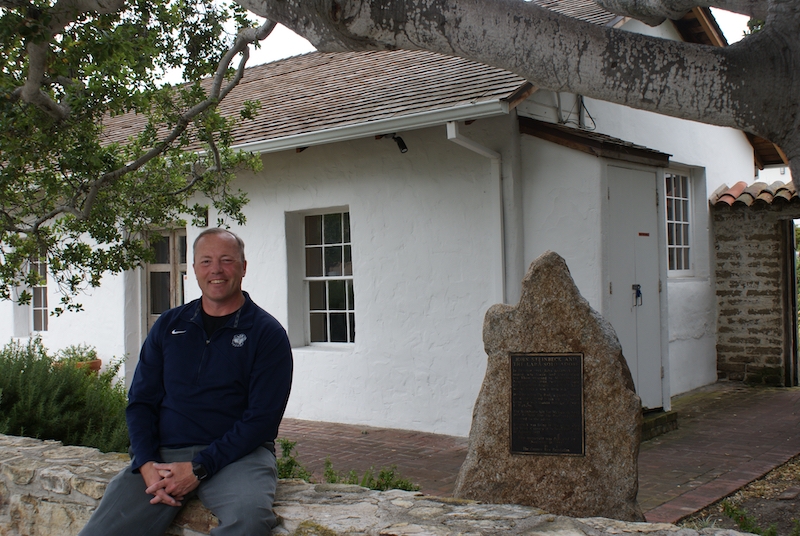A “Transformational” Experience for Army War College Fellow
| by Jason Warburg
The Middlebury Institute was U.S. Army Col. Timothy Zetterwall’s top choice for his fellowship because of its international perspective and campus community.

The Middlebury Institute’s Army War College Fellow for 2019-20, Lieutenant Colonel James P. Harwell, has been selected to receive the U.S. Army War College Commandant’s Award for Distinction in Research.
LTC Harwell, an Army Chemical Officer, is the sixth Army officer to be sent to MIIS as a War College Fellow. As part of their fellowship, each officer is required to write an original research paper addressing a national security problem. LTC Harwell wrote his paper on “Breaking the Northeast Asia Proliferation Chain: Insecurity, Identity, and Nationalism,” under the guidance of Professor Jeff Knopf, chair of the Nonproliferation and Terrorism Studies program. This paper was one of five to be recognized with the prestigious Award.
“MIIS was my first choice for two reasons,” LTC Harwell shares. Coming to Monterey was a homecoming of sorts for him. “I grew up in the Army and my father was stationed at Fort Ord so I spent my Freshman and Sophomore years at Seaside and North Salinas High Schools. I loved my time in Monterey as a kid and I wanted my family to share in that experience.” The second reason is that he is an Army Chemical Officer and the Middlebury Institute provides “a unique opportunity among the Army fellowships.” LTC Harwell says he has grown up in the Army reading the work of Bill Potter, Raymond Zilinskas, and Jonathan Tucker and the Institute gave him the opportunity to learn under thought leaders in the weapons of mass destruction field of study. “Ultimately, my year at the Middlebury Institute proved to be the most personally and professionally rewarding year of my career.”
Ultimately, my year at the Middlebury Institute proved to be the most personally and professionally rewarding year of my career.
In 2004 LTC Harwell commanded a Chemical Company in Korea. Just after he left the peninsula, North Korea conducted its first nuclear test. “Since then Korea has been the central focus of my career field.” He says that he wanted to pick a topic of research that was relevant to the contemporary national security environment, challenged his assumptions relative to this problem, and gave him the opportunity to grow. LTC Harwell’s next assignment will be at the Pentagon where I will serve as the Counterproliferation Planner in the Joint Staff Directorate of Plans and Policy.
His vast knowledge as well as his extraordinary enthusiasm added a great deal to all the classes he was sitting in, not only to his peers, our own MIIS students, but also quite often to the classes’ instructors. I have learned much from him.
“His vast knowledge as well as his extraordinary enthusiasm added a great deal to all the classes he was sitting in,” says Professor Avner Cohen, “not only to his peers, our own MIIS students, but also quite often to the classes’ instructors. I have learned much from him.”
The Institute has been chosen to host a new Army War College fellow in the coming academic year, and will be welcoming Colonel Derek Keller, a Special Forces Officer who will be joining the MIIS community this fall from U.S. Special Operations Command.
Eva Gudbergsdottir
eva@middlebury.edu
831.647.6606
| by Jason Warburg
The Middlebury Institute was U.S. Army Col. Timothy Zetterwall’s top choice for his fellowship because of its international perspective and campus community.
As Director, Dr. Pilch will lead the education, training, and research initiatives of the Center’s chemical and biological weapons nonproliferation portfolio, including projects and programs requiring in-depth technical assessments, policy analysis, and public outreach.
The Middlebury Institute recently hosted the first U.S. Army College International Strategic Crisis Negotiation Exercise held on the West Coast, offering students from the Institute, Stanford, UC Berkeley, the Naval Postgraduate School, and CSU Monterey Bay a unique training opportunity.